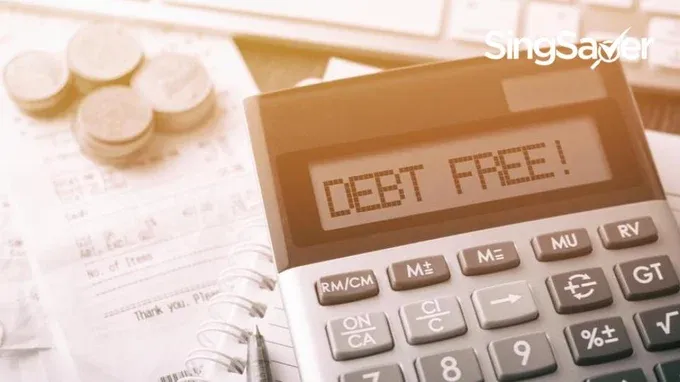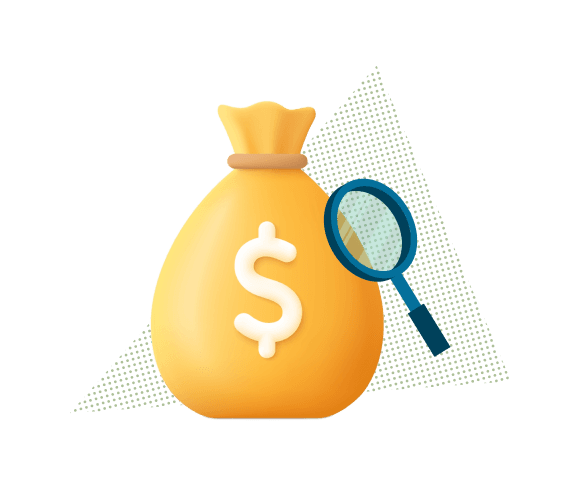How to Clear Debt: Strategies to Consider in Singapore
Updated: 26 Jan 2026
Written bySingSaver Team
Team

The information on this page is for educational and informational purposes only and should not be considered financial or investment advice. While we review and compare financial products to help you find the best options, we do not provide personalised recommendations or investment advisory services. Always do your own research or consult a licensed financial professional before making any financial decisions.
Getting into debt is easy. Getting out of it? That’s where most people struggle. Whether it’s credit cards, personal loans, or a mix of both, high interest rates can quickly turn manageable balances into a mountain that feels impossible to climb.
The good news is you don’t need to stay stuck. With the right plan — and some discipline — you can take back control of your finances. This guide walks you through practical approaches on how to pay off debt, how to clear debt fast, and how to make sure you don’t end up in the same situation again.
Compounding interest is a slippery slope
Before diving into strategies, let’s understand why debt spirals so quickly.
Take credit card debt as an example. With an annual interest rate of around 28.8%, your outstanding balance can balloon even if you’re paying the minimum each month. Payments are applied to finance charges first, with only the remainder reducing your principal.
Here’s how it might look:
|
Credit card statement (28.8% p.a.) |
Amount owed |
Finance charges |
Statement total |
Payment |
|
Jan 2020 |
S$4,668 |
S$112 |
S$4,780 |
S$150 (S$112 to charges, S$38 to debt) |
|
Feb 2020 |
S$4,630 |
S$111.12 |
S$4,741.12 |
S$200 (S$111.12 to charges, S$88.88 to debt) |
|
Mar 2020 |
S$4,541.12 |
S$108.98 |
S$4,650.10 |
NA |
In three months, you’ve paid S$350. Yet your outstanding balance has only been reduced by about S$130. That’s the power of compounding interest working against you.
This is why many people ask, “How can I get out of debt if I’m paying but not seeing progress?” The answer lies in applying the right repayment strategy.
Snowball strategy
The snowball method is all about momentum. You start by paying off your smallest debt first, regardless of its interest rate.
-
How it works:
-
List all your debts from smallest to largest.
-
Continue making minimum payments on all debts.
-
Channel any extra money toward clearing the smallest balance.
-
Once it’s gone, move to the next-smallest, and so on.
-
Why it works: Quick wins boost motivation. Every cleared balance frees up more cash to tackle the next one.
-
Best for: People who need to see fast results to stay committed.
-
Watch out for: You may pay more interest overall compared to other methods, since high-interest debts may remain longer on your list.
If you’ve been wondering how to pay off loan balances without losing steam, this method could be a game-changer.
Balance transfers in Singapore: How they work & when to use them
Rolling over high-interest debt? A balance transfer could buy you breathing room with lower rates and flexible repayment terms. Here’s what you need to know before applying.
Avalanche strategy
The avalanche method prioritises interest savings. You focus on debts with the highest interest rates first.
-
How it works:
-
List all your debts by interest rate, from highest to lowest.
-
Make minimum payments on all.
-
Direct all extra payments to the highest-interest debt.
-
Once cleared, move to the next highest, and so forth.
-
Why it works: This saves you the most money in the long run and helps you clear debt fast if you can stick with it.
-
Best for: People who are disciplined and can commit even if it takes longer to see balances disappear.
-
Downside: Progress may feel slow at first, especially if your highest-interest debt is also your largest.
If your biggest concern is cost rather than speed, avalanche is the smarter approach.
Balancing debt repayment with savings
Paying off debt aggressively sounds great, but should you also save? The short answer: yes, but it depends on your circumstances.
What is your financial situation?
First, take stock of your income, expenses, and total debt. Note balances, due dates, and whether you’re paying only the minimums or more. Having this overview ensures you’re making informed decisions on whether to prioritise savings or repayment.
» MORE: What is a personal loan and how does it work?
Do you have an emergency fund?
An emergency fund (3 – 6 months of living expenses) shields you from setbacks like medical bills or job loss. Without it, you risk going deeper into debt when the unexpected happens.
If your income is irregular (say, you’re a freelancer), aim for a bigger cushion — closer to 12 months. Even small, consistent contributions can help you build this safety net while still repaying debt.
What kind of debt do you have?
Not all debts are created equal.
-
Secured loans (like mortgages or car loans) usually come with lower rates and aren’t as urgent to pay off.
-
Unsecured loans (like personal loans and credit cards) often carry higher rates, making them more dangerous if left unchecked.
This means if you’re deciding between saving and how to pay off debt, prioritise high-interest unsecured debt while still setting aside a modest savings buffer.
» MORE: Best personal loans in Singapore
Communicating with creditors
If you’re falling behind, don’t avoid calls or letters. Proactive communication can often buy you time and flexibility.
-
Negotiate repayment terms: Banks and licensed moneylenders may allow you to restructure your debt — by extending your loan tenure, lowering your interest, or waiving late charges.
-
Stay cooperative: Creditors are more likely to help if you show you’re committed to repayment. Respond promptly and work with them rather than against them.
-
Seek formal help if needed: Programmes like the Debt Management Programme (DMP) from Credit Counselling Singapore or a Debt Consolidation Plan (DCP) from banks can help combine multiple unsecured debts into a single repayment plan.
» MORE: Moneylender rules in Singapore
Debt management and insolvency pathways
For individuals with overwhelming debt, Singapore provides regulated solutions:
-
Debt Consolidation Plan (DCP): For those with multiple unsecured loans, combining them into one monthly repayment at a lower interest rate.
-
Debt Management Programme (DMP): A voluntary arrangement facilitated by Credit Counselling Singapore to help you restructure debts with banks.
-
Debt Repayment Scheme (DRS): For individuals with unsecured debt not exceeding S$150,000, supervised by the Official Assignee.
-
Bankruptcy: The last resort, with significant legal and financial consequences, but sometimes necessary.
These options provide structured ways forward when self-managed repayment isn’t enough.
» MORE: Licensed moneylenders in Singapore – what you need to know
Practical tips for staying debt-free
-
Track your expenses closely — small leaks can sink your budget.
-
Automate bill payments to avoid late fees.
-
Limit credit card usage unless you can pay in full each month.
-
Review your financial goals quarterly to stay on track.
-
Consider professional financial advice if you feel overwhelmed.
» MORE: How to budget and save smarter
Conclusion
Debt can feel overwhelming, but it doesn’t have to be permanent. By choosing a repayment method — snowball for motivation, avalanche for interest savings — and balancing repayment with savings, you can move toward financial stability.
If needed, don’t hesitate to negotiate with creditors or explore formal debt management schemes. Clearing debt takes time, patience, and persistence, but every step forward puts you closer to financial freedom.
So if you’ve been asking yourself “how to get out of debt” or “how can I get out of debt fast?” — start with one strategy today. The sooner you act, the sooner you’ll stop paying for yesterday and start saving for tomorrow.
Ready to take charge of your finances? Compare personal loan options in Singapore to find the best fit for your needs.
Relevant articles
What is Debt Relief, and How Can You Choose the Best Option for Your Debt?
Feeling like you're running in place with your debts, no matter how diligently you pay? Are you struggling to make headway on your credit card balances or personal loans? If so, exploring debt relief options might offer a more effective path to financial recovery.
About the author
SingSaver Team
At SingSaver, we make personal finance accessible with easy to understand personal finance reads, tools and money hacks that simplify all of life’s financial decisions for you.
